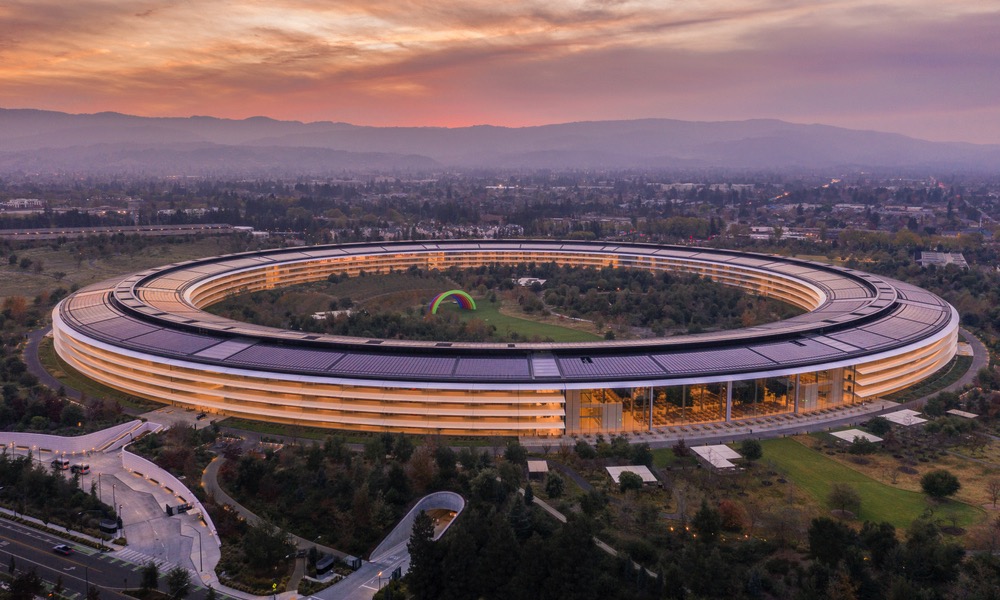Despite Employee Protests, Apple Will Not Be Going Fully Remote
 Credit: SnapASkyline / Shutterstock
Credit: SnapASkyline / Shutterstock
Toggle Dark Mode
Many big tech companies have embraced remote work as a result of the global health pandemic, finding to their surprise that such a business model can actually make employees not only happier, but also more productive.
Unfortunately, it looks like Apple is not one of them.
Earlier this month, an internal memo sent out by Apple CEO Tim Cook dashed the hopes of at least some Apple staffers when he made it clear that the company will soon expect everyone to return to work at Apple Park for at least three days per week.
It was a move that proved unpopular with at least some staff members, especially since many of Apple’s Silicon Valley counterparts had moved into substantially more flexible remote working arrangements.
In fact, some like Twitter have told employees that they can work from home forever if they want to, stating that “Opening offices will be our decision. When and if our employees come back, will be theirs.”
Within a day of Cook’s memo, at least some Apple employees pushed back, protesting the decision in an internal letter leaked to The Verge. It’s unclear how many employees were unsatisfied with Apple’s stance, but it reportedly began in a 2,800-member internal Slack channel for “remote work advocates,” and was drafted by about 80 people.
Apple’s remote/location-flexible work policy, and the communication around it, have already forced some of our colleagues to quit. Without the inclusivity that flexibility brings, many of us feel we have to choose between either a combination of our families, our well-being, and being empowered to do our best work, or being a part of Apple.
Letter to Tim Cook from Apple “remote work advocates”
To put this in perspective, Apple Park is estimated to house a little over 12,000 employees. However, Apple has almost 150,000 employees worldwide, including its retail store workers and those at other offices around the world. It’s unclear if the 2,800 “remote work advocates” all work at Apple Park.
The letter goes on to “formally request” that Apple allow individual teams to make their own remote work decisions, send out a company-wide survey to collect feedback from all employees on remote working preferences, and ask employees who leave Apple whether their decision has anything to do with the lack of remote work opportunities.
The group also suggests that Apple’s stance on remote work goes against its publicly stated policies on diversity and inclusion, particularly for employees with disabilities, and also asks Apple to perform an environmental impact study on the effects of onsite in-person work versus permanent remote working flexibility.
Apple Remains Unmoved
Now, it looks like Apple has offered up a response to these concerns that basically amounts to a firm but polite “No.”
In a video recording seen by The Verge, Apple’s HR chief, Deirde O’Brien, has tacitly stated that Apple stands firm on its work policy, emphasizing the importance of in-person work to Apple’s aims and goals.
We believe that in-person collaboration is essential to our culture and our future. If we take a moment to reflect on our unbelievable product launches this past year, the products and the launch execution were built upon the base of years of work that we did when we were all together in-person.
Deirdre O’Brien, Senior Vice President of Retail and People at Apple
To be clear, Apple isn’t closing the door to remote work entirely, it’s just clearly going to be the exception, and not the rule, and those exceptions are going to have to come from the top.
O’Brien repeats Cook’s earlier comments that remote work decisions will be made “on a case-by-case basis, with any new remote positions requiring executive approval.”
To be fair, Apple’s new hybrid work approach is already a considerable departure from the company’s previous policies. Before the pandemic, Apple strongly discouraged remote work in all but the most extreme cases, so by the previous standards, allowing employees to work from home two days per week is already a big concession.
Further, as John Gruber points out at Daring Fireball, the claims about Apple’s policy neglecting to consider employees with disabilities seems disingenuous, since the company generally bends over backward to include and accommodate those employees with special needs. In fact, it’s very likely that the “case-by-case” exceptions that both Cook and O’Brien talk about are for exactly these kinds of scenarios.
I have never once heard of Apple not doing whatever it takes not only to accommodate employees with any disability, but to make them feel welcome.
John Gruber, Daring Fireball
Gruber goes on to suggest that Apple may have made some bad hiring decisions recently, employing people who don’t understand the company’s culture. Apple is a very different beast from its more software-focused counterparts like Google, Facebook, and Twitter. It has a much more highly secretive culture, not just for its new hardware products, but even for software updates like iOS 15, and this sort of thing requires a much greater degree of in-person collaboration.
After all, Apple isn’t about to let hardware engineers bring early prototypes home for development — we’ve already seen how that’s a recipe for disaster — but even allowing remote work on schematics and software code outside the highly secure Apple Park campus significantly increases the risk of leaks.
That said, after over a year of working remotely, returning to the office may be a hard pill for some to swallow, even if it’s only three days per week. However, none of this should come as a surprise to Apple employees, as Apple has gradually been recalling folks on and off for over a year now.
While Tim Cook did express some optimism about remote work last fall, he also said that Apple’s culture requires being together physically to benefit from the “impromptu creativity” that goes into many of the company’s products.






